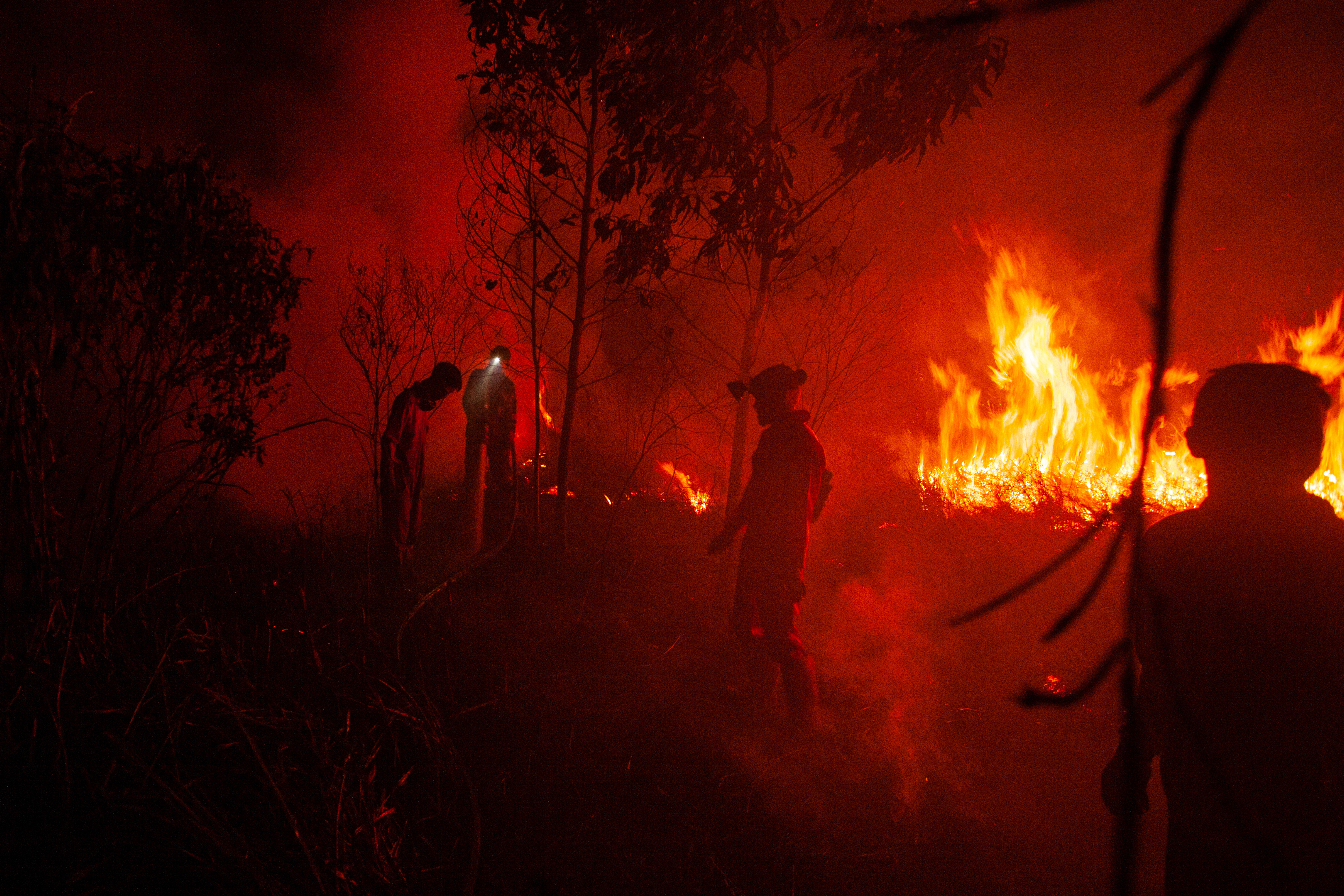
LONDON / SINGAPORE - The intense northern hemisphere summer heat that drove wildfires across the Mediterranean and buckled roads in Texas last year made it not just the warmest summer on record - but the warmest in some 2,000 years, new research suggests.
The stark finding comes from one of two new studies released on Tuesday as both global temperatures and climate-warming emissions continue to climb.
Scientists had quickly declared last year's June to August period as the warmest since record-keeping began in the 1940s.
New work published in the journal Nature suggests the 2023 heat eclipsed temperatures over a far longer timeline - a finding established by looking at meteorological records dating to the mid-1800s and temperature data based on the analysis of tree rings across nine northern sites.
Last year's intense summer heat was amplified by the El Nino climate pattern, which typically coincides with warmer global temperatures, leading to "longer and more severe heatwaves, and extended periods of drought," Esper said
"When you look at the long sweep of history, you can see just how dramatic recent global warming is," said study co-author Jan Esper, a climate scientist at Johannes Gutenberg University in Germany.
ALSO READ: World's record-breaking temperature streak extends through April
Last year's summer season temperatures on lands between 30 and 90 degrees north latitude reached 2.07 degrees Celsius (3.73 degrees Fahrenheit) higher than pre-industrial averages, the study said.
Based on tree ring data, the summer months in 2023 were on average 2.2 C (4 F) warmer than the estimated average temperature across the years 1 to 1890.
The finding was not entirely a surprise. By January, scientists with the European Union's Copernicus Climate Change Service were saying the year of 2023 was "very likely" to have been the warmest in some 100,000 years.
However, proving such a long record is unlikely, Esper said. He and two other European scientists argued in a paper last year that year-by-year comparisons could not be established over such a vast time scale with current scientific methods, including gleaning temperature data from sources such as marine sediments or peat bogs.
"We don't have such data," Esper said. "That was an overstatement."

Last year's intense summer heat was amplified by the El Nino climate pattern, which typically coincides with warmer global temperatures, leading to "longer and more severe heatwaves, and extended periods of drought," Esper said.
150,000 deaths annually
Heatwaves are already taking a toll on people's health, with more than 150,000 deaths in 43 countries linked to heatwaves for each year between 1990 and 2019, according to the details of a second study published on Tuesday in the journal PLOS Medicine.
That would account for about 1 percent of global deaths - roughly the same toll taken by the global COVID-19 pandemic.
ALSO READ: Scientists: Health-harming heat stress rising in Europe
More than half of those heatwave-related excess deaths occurred in populous Asia.
When the data are adjusted for population size, Europe had the highest per capita toll with an average of 655 heat-related deaths each year per 10 million residents. Within the region, Greece, Malta, and Italy registered the highest excess deaths.
Extreme heat can trigger heart problems and breathing difficulty or cause heat stroke.
Extreme temperatures throughout Asia last month were made worse - and more likely - as a result of human-driven climate change, according to a team of international scientists
Climate change
Meanwhile, extreme temperatures throughout Asia last month were made worse - and more likely - as a result of human-driven climate change, according to a team of international scientists.
Billions of people across the continent were affected by record-breaking temperatures during April, with schools forced to shut down, crops damaged and hundreds of people killed by heat-related illnesses, climate experts from the World Weather Attribution group said in a report.
ALSO READ: UN confirms 48.8°C as Europe's highest ever temperature
Myanmar, Laos and Vietnam experienced their hottest April days on record, while temperatures in India reached as high as 46 C, they said.
"From Gaza to Delhi to Manila, people suffered and died when April temperatures soared in Asia," said Friederike Otto, Senior Lecturer in Climate Science at the Grantham Institute of Climate Change and the Environment, one of the report's authors.
"Heatwaves have always happened. But the additional heat, driven by emissions from oil, gas and coal, is resulting in death for many people."
In the Philippines, one of the worst-hit countries, authorities issued health warnings, shut down schools and rationed electricity supplies as soaring temperatures threatened the country's power grid.

The 15-day heatwave, which started in the middle of the month, would have been "virtually impossible, even under El Nino conditions" without the impact of man-made global warming, the report said.
Parts of the Middle East saw record-breaking temperatures over April 24-26, with Tel Aviv hitting 40.7 C. Extreme temperatures in western Asia were made five times more likely by climate change, the report estimated.
"The heat that we saw is really compounding an already dire crisis at the moment in Gaza," Carolina Pereira Marghidan of the Red Cross Red Crescent Climate Centre said at a briefing on Tuesday.
Temperatures around India's Kolkata in late April reached 46 C, 10 C higher than the seasonal average, with climate change making extreme temperatures throughout South Asia around 45 times more likely, the report added.
READ MORE: WHO urges action as deaths from heat surge in Europe
Asian governments need to take action to adapt to soaring temperatures and minimize health risks, particularly in vulnerable sections of the population, said Marghidan.
"Considering that rate at which extreme heat is rising... we see a big need for heat action plans to be scaled up and current plans to be improved across Asia," she said.


